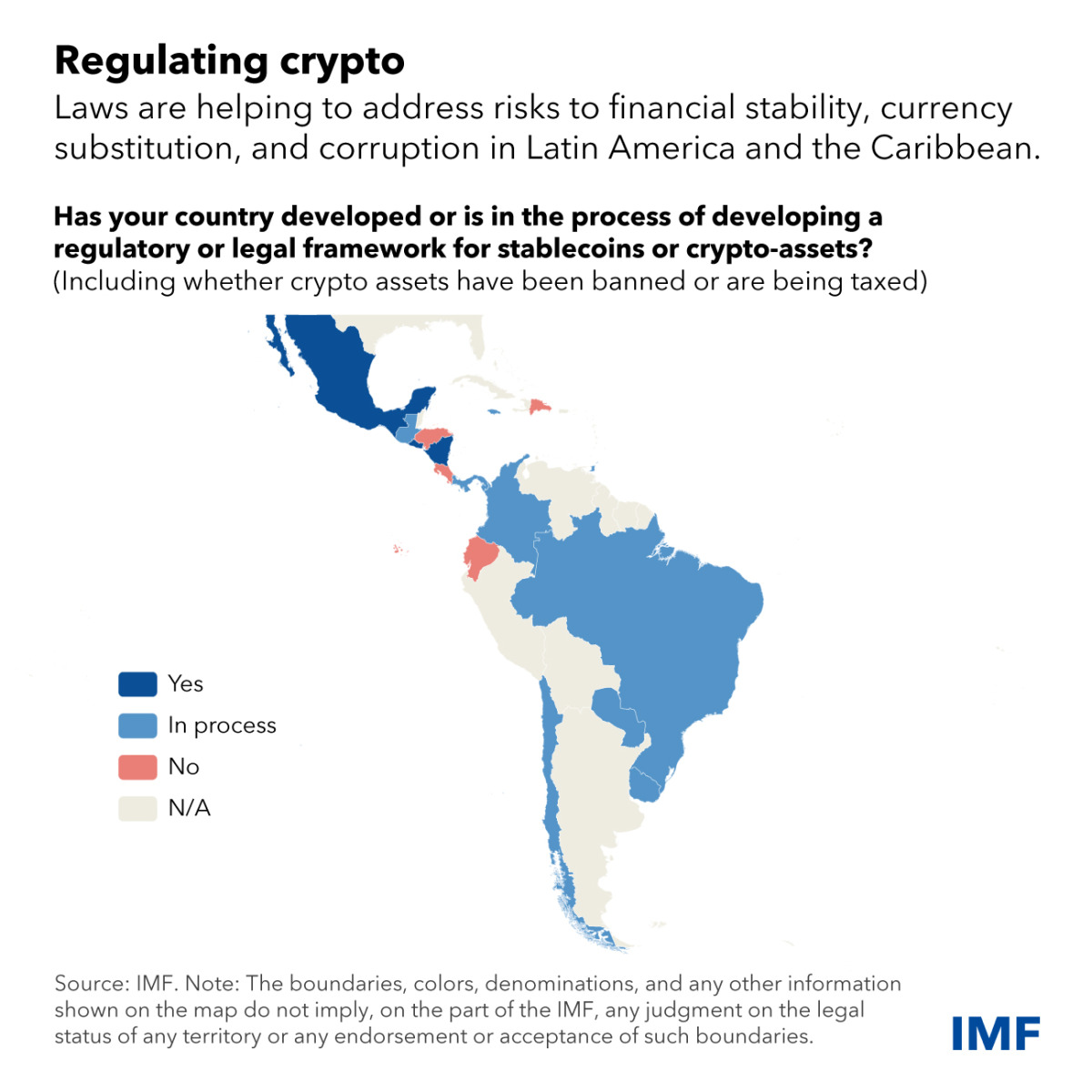The International Monetary Fund IMF has shared a new report as the blockchain and cryptocurrency industry continues to grow. Focusing on the Latin America region, experts compared independent crypto and CBDC currencies.
Emphasizing that El Salvador has made its name known to the whole world by accepting Bitcoin, experts stated that the industry is growing faster in the region. The IMF’s report also includes the comment that the countries of the region are focusing on digital currency CBDCs. Central banks working on CBDC want to prevent the informal economy by reducing payment costs.
The Bahamas was the first region to work on a CBDC by digitizing the currency called “Sand Dollar” in 2020, followed by the Caribbean and Jamaica. Brazil has benefited from blockchain technology by tokenizing products such as real estate, commodities and stocks.
IMF officials referred to the region’s Argentina, Colombia, Brazil and Ecuador to be in the top 20 in the world rankings. The Latin American public is showing great interest in cryptocurrencies to pass additional income and capital controls.
What Risk Does Cryptocurrency Bring?
The International Monetary Fund also highlighted the risks posed by the adoption of cryptoassets in its Latin America report. Decentralized currencies significantly undermine institutional trust in countries. Governments, who want to prevent this situation, go to the way of regulation. In an image it shared, the IMF revealed that 12 of the 19 countries on the continent are working on regulation.

Although most Latin American countries pass crypto laws, they have different points of view. El Salvador declared Bitcoin legal currency, while Argentina banned cryptocurrencies.
Long Term Crypto Bans…
In the continuation of the report, IMF officials, who listed the general purposes of CBDC, commented on the bans. Experts think that cryptocurrency bans will not be effective in the long run. However, if governments meet the digital demand themselves, demand may decrease.
The comments made by the experts of the International Monetary Fund on the bans had a great impact on social media.







